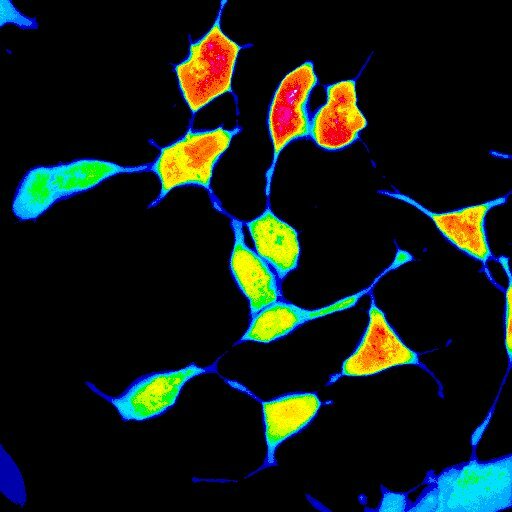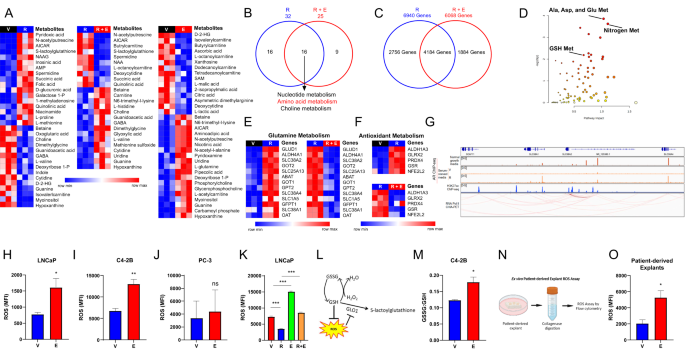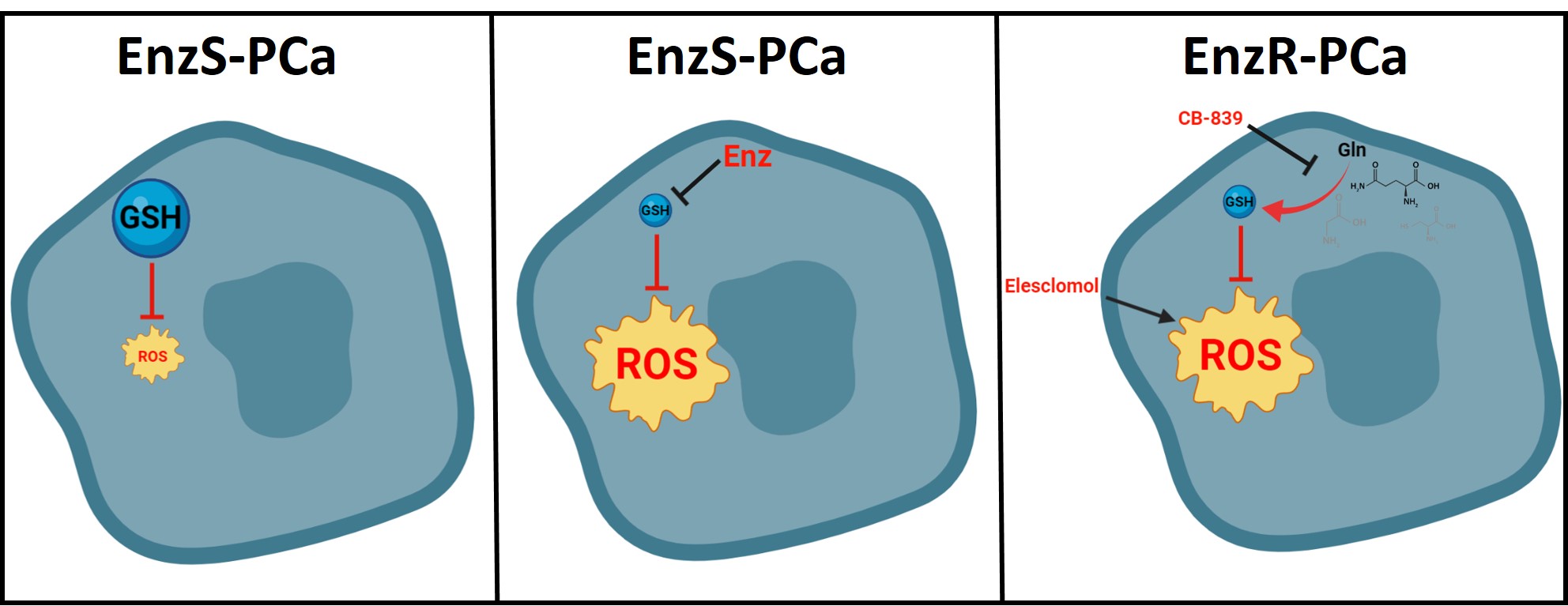
Explore the Research

Critical role of antioxidant programs in enzalutamide-resistant prostate cancer - Oncogene
Oncogene - Critical role of antioxidant programs in enzalutamide-resistant prostate cancer
Why?
For patients with advanced prostate cancer, androgen receptor signaling inhibitors, such as enzalutamide, have shown utility in improving survival [1, 2]. However, therapy resistance and disease progression is common, with ~30,000 deaths from prostate cancer each year in the U.S. alone [3]. We sought to decipher metabolic drivers involved in enzalutamide-resistant prostate cancer (EnzR-PCa).
Main Findings
Herein, we identified that enzalutamide induces oxidative stress by blocking androgen receptor-regulated glutamine and antioxidant metabolism genes. Enzalutamide-resistant prostate cancers are characterized by higher basal and inducible levels of reactive oxygen species. Using comparative unbiased metabolomics in paired enzalutamide-sensitive (EnzS) and EnzR-PCa cell lines, we noted that antioxidant pathways driven by glutamine metabolism were dramatically enhanced in EnzR-PCa cell lines. We postulated that the enhanced antioxidant pathways enable these enzalutamide-resistant prostate cancers to tolerate higher levels of oxidative stress, and that this dependency represents a targetable vulnerability. In support, we demonstrated a greater sensitivity of enzalutamide-resistant prostate cancers to agents that increase oxidative stress or block antioxidant pathways. We have specifically shown that either small-molecule inhibitors or genetic ablation of key enzymes involved in either glutamine or ferredoxin metabolism significantly slow the growth of enzalutamide-resistant prostate cancers.

Significance
This is the first study to comprehensively characterize the comparative metabolism of enzalutamide-sensitive and enzalutamide-resistant prostate cancers in cell lines in vitro, xenografts in vivo, patient-derived organoids, and patient tumors. From our studies, we have identified that antioxidant pathways in enzalutamide-resistant prostate cancers represent a targetable metabolic vulnerability. Our studies demonstrate that targeted disruption of either glutamine or ferredoxin metabolism block the critical antioxidant programs needed for the survival of enzalutamide-resistant prostate cancers and may translate into an effective clinical strategy.
References:
- Hussain, M., et al., Enzalutamide in Men with Nonmetastatic, Castration-Resistant Prostate Cancer. N Engl J Med, 2018. 378(26): p. 2465-2474.
- Komura, K., et al., Comparison of Radiographic Progression-Free Survival and PSA Response on Sequential Treatment Using Abiraterone and Enzalutamide for Newly Diagnosed Castration-Resistant Prostate Cancer: A Propensity Score Matched Analysis from Multicenter Cohort. J Clin Med, 2019. 8(8).
- Siegel, R.L., et al., Cancer statistics, 2023. CA Cancer J Clin, 2023. 73(1): p. 17-48.
Follow the Topic
-
Oncogene

This journal aims to make substantial advances in our knowledge of processes that contribute to cancer by publishing outstanding research.


Please sign in or register for FREE
If you are a registered user on Research Communities by Springer Nature, please sign in